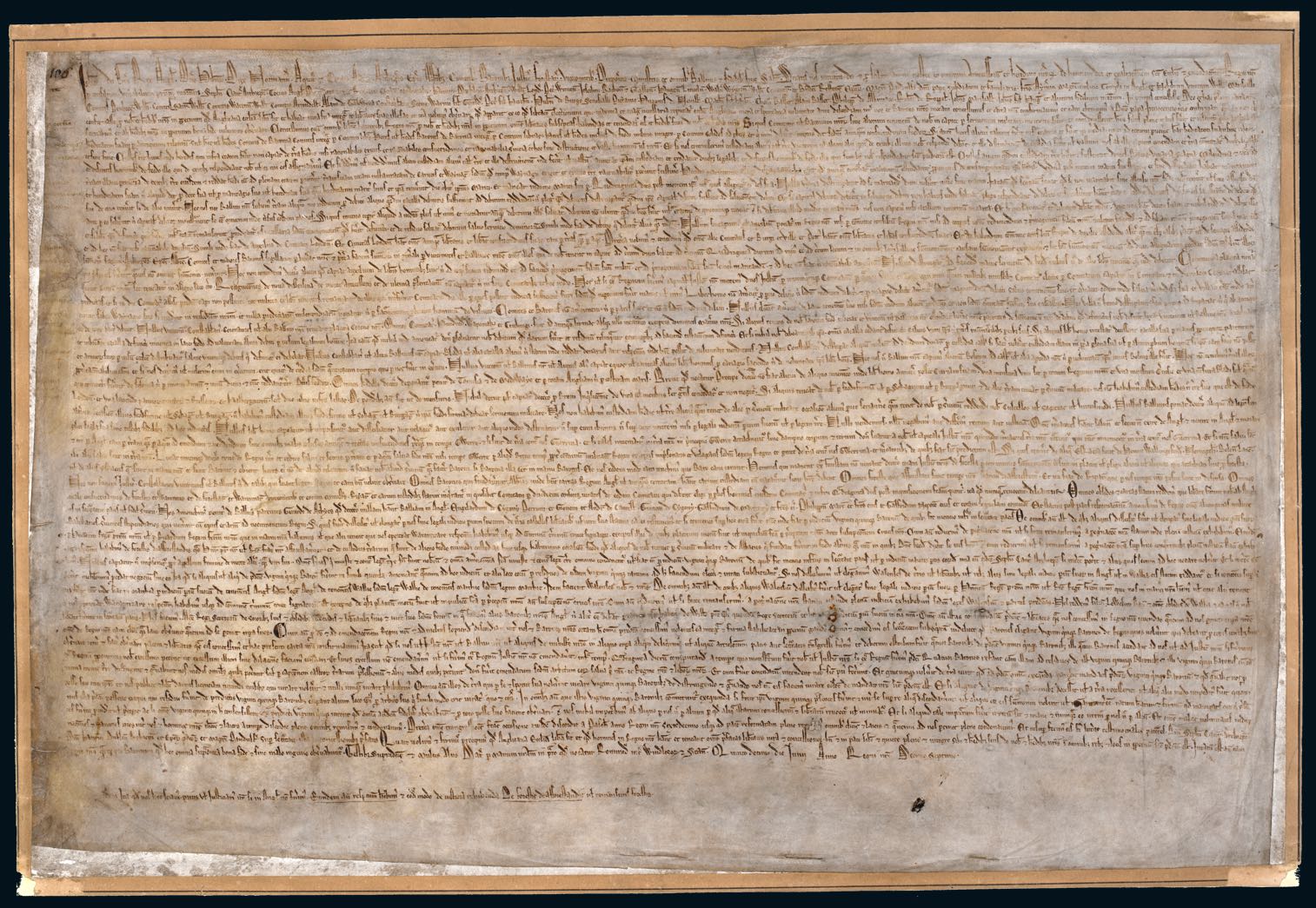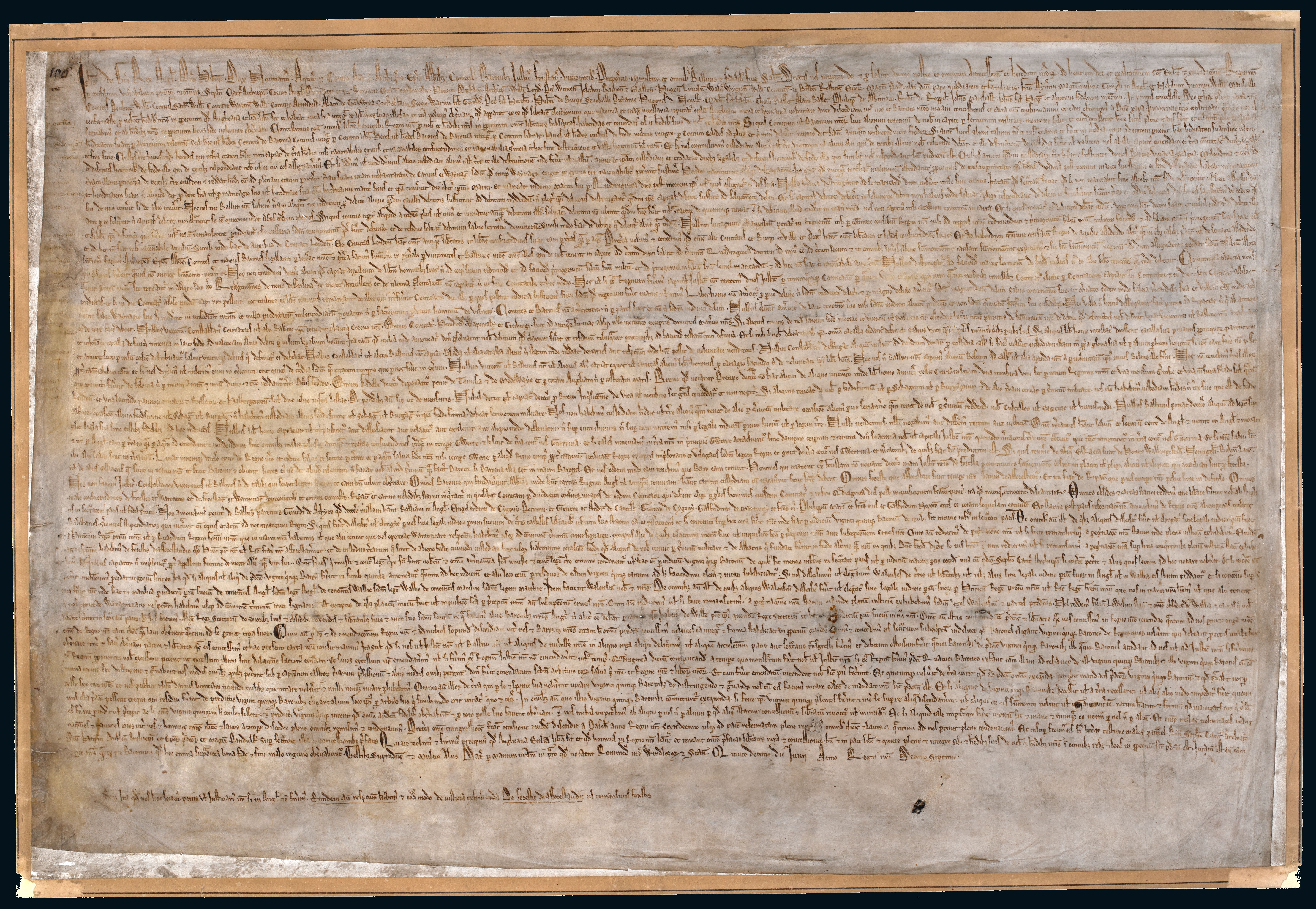
Eundem autem respectum habebimus, et eodem modo, de justicia exhibenda de forestis deafforestandis vel remansuris forestis, quas Henricus pater noster vel Ricardus frater noster afforestaverunt, et de custodiis terrarum que sunt de alieno feodo, cuiusmodi custodias hucusque habuimus occasione feodi quod aliquis de nobis tenuit per servicium militare et de Abbaciis que fundate fuerint in feodo alterius quam nostro, in quibus Dominus feodi dixerit se ius habere; et cum redierimus, vel si remanserimus a peregrinacione nostra, super hiis conquerentibus plenam iusticiam statim exhibebimus.
We shall have similar respite in rendering justice in connexion with forests that are to be disafforested, or to remain forests, when these were first afforested by our father Henry or our brother Richard; with the guardianship of lands in another person's 'fee', when we have hitherto had this by virtue of a 'fee' held of us for knight's service by a third party; and with abbeys founded in another person's 'fee', in which the lord of the 'fee' claims to own a right. On our return from the Crusade, or if we abandon it, we will at once do full justice to complaints about these matters.
